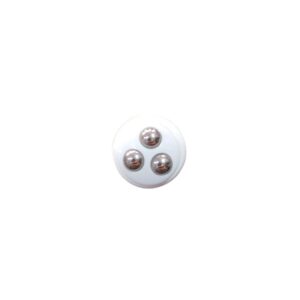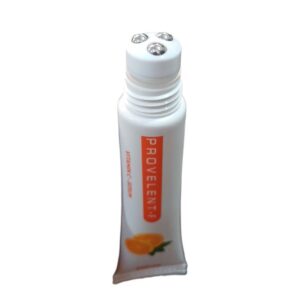VITAMIN C + HYALURONIC ACID + GLUTATHIONE + FERULIC ACID
Vitamin C: Drug: Vitamin C (Ascorbic Acid)
Use: Vitamin C is a dietary supplement used to prevent or treat vitamin C deficiency. It is also commonly taken to boost the immune system and combat the symptoms of the common cold. Furthermore, it is used in the treatment and prevention of various medical conditions such as scurvy, iron deficiency anemia, and oxidative stress.
Mechanism of Action: Vitamin C is an essential nutrient for the human body and has antioxidant properties. It plays a crucial role in the synthesis of collagen, a protein that helps in wound healing, as well as in maintaining the health of teeth, bones, and blood vessels. Additionally, it enhances the absorption of iron from plant-based foods and aids in the proper functioning of the immune system.
Dose: The recommended daily intake of vitamin C varies based on age, gender, and specific medical conditions. For adults, the average daily dose is 75-90 mg, but it can range from 25 mg to 2000 mg depending on the purpose of use and individual needs. It is available in various forms such as tablets, capsules, chewables, liquids, and intravenous formulations.
Side Effects: Vitamin C is generally safe for most individuals when taken in recommended doses. However, consuming excessive amounts of vitamin C may cause certain side effects such as diarrhea, nausea, stomach cramps, and headache. High doses (>2000 mg/day) can also lead to kidney stones formation in susceptible individuals. People with a history of kidney stones or renal impairment should exercise caution and consult with a healthcare professional before taking high doses of vitamin C.
Note: This is a basic description of the drug Vitamin C. Always consult a healthcare professional or read the package insert for specific and detailed information regarding its use, dosing, and potential side effects.
Hyaluronic Acid: Hyaluronic Acid is a substance that naturally exists in the body, particularly in the connective tissues, skin, and eyes. It also acts as a lubricant and shock absorber in joints. In a pharmaceutical form, it is used as a medication to treat osteoarthritis, a condition characterized by joint pain, stiffness, and inflammation.
The mechanism of action of Hyaluronic Acid involves its ability to augment the natural lubricating and cushioning properties of the synovial fluid in the joints. By injecting Hyaluronic Acid directly into the joint, it helps to improve joint movement, reduce pain, and alleviate symptoms associated with osteoarthritis.
The most common way of administering Hyaluronic Acid is through intra-articular injections. The dose and frequency of injections may vary depending on the specific product being used and the severity of the condition. Typically, a healthcare professional will administer a series of injections over several weeks or months.
As with any medication, Hyaluronic Acid may cause side effects. The common side effects of the injections may include pain or swelling at the injection site. In rare cases, some individuals may experience an allergic reaction, which can manifest as itching, rash, or difficulty breathing. It is important to inform your healthcare provider if you experience any adverse reactions.
Overall, Hyaluronic Acid is generally well-tolerated and can provide relief for individuals suffering from osteoarthritis. However, it is essential to consult with a healthcare professional to determine if it is an appropriate treatment option for your specific condition and to discuss any potential risks or concerns.
Glutathione: Glutathione is a natural antioxidant and tripeptide that is found in almost all cells of the body. It is primarily used as a skin-lightening agent and is also believed to have several other health benefits.
When used for skin lightening, Glutathione works by inhibiting the production of melanin, the pigment responsible for the color of our skin. By reducing melanin production, it can help in achieving a lighter, more even skin tone. It is commonly used to treat skin conditions such as melasma, hyperpigmentation, and dark spots.
Glutathione is available in various forms including oral supplements, topical creams, and injections. The most popular and effective method of administration is through intravenous (IV) injections, as it allows for better absorption and faster results.
The recommended dose of Glutathione varies depending on the individual and the desired outcome. For skin lightening purposes, it is usually administered as a weekly course of injections for a period of 10-12 weeks. After the initial treatment, a maintenance dose may be advised to sustain the desired skin tone.
While Glutathione is generally considered safe for use, it can have some potential side effects. These may include allergic reactions, headaches, gastrointestinal discomfort, and rare instances of skin rashes. It is important to consult a healthcare professional before starting any Glutathione treatment to assess the suitability and minimize the risk of adverse effects.
It is worth noting that the use of Glutathione for skin lightening purposes is controversial and not approved by regulatory authorities in many countries. It is crucial to have a thorough understanding of the potential risks and benefits before considering its use, and it is recommended to seek advice from a qualified healthcare provider.
Ferulic Acid: Ferulic acid is a phenolic compound found in several plant species, such as rice bran, wheat, and oats. It is commonly used as a dietary supplement due to its potential health benefits and antioxidant properties.
One of the main uses of ferulic acid is in skincare products. It is known for its ability to neutralize free radicals and protect the skin against damage caused by UV radiation. Ferulic acid is often combined with other antioxidants, such as vitamin C and vitamin E, to enhance its protective effects on the skin.
The exact mechanism of action of ferulic acid is not fully understood, but it is believed to work by scavenging and neutralizing free radicals, which are highly reactive molecules that can cause damage to cells and DNA. This antioxidant activity helps to prevent oxidative stress and inflammation, which are associated with various diseases and aging processes.
The recommended dose of ferulic acid as a dietary supplement varies, but commonly ranges from 250 mg to 500 mg per day. However, it is important to consult with a healthcare professional before starting any new supplement regimen, as individual requirements may vary.
Ferulic acid is generally considered safe and well-tolerated when used in appropriate doses. However, some individuals may experience mild side effects, such as gastrointestinal discomfort, diarrhea, or allergic reactions. It may also interact with certain medications, so it is important to inform your healthcare provider about all medications and supplements you are taking before starting ferulic acid.
Overall, ferulic acid is a natural compound with antioxidant properties that can be beneficial for the skin and potentially for overall health. However, more research is needed to fully understand its mechanisms of action and potential long-term effects.


